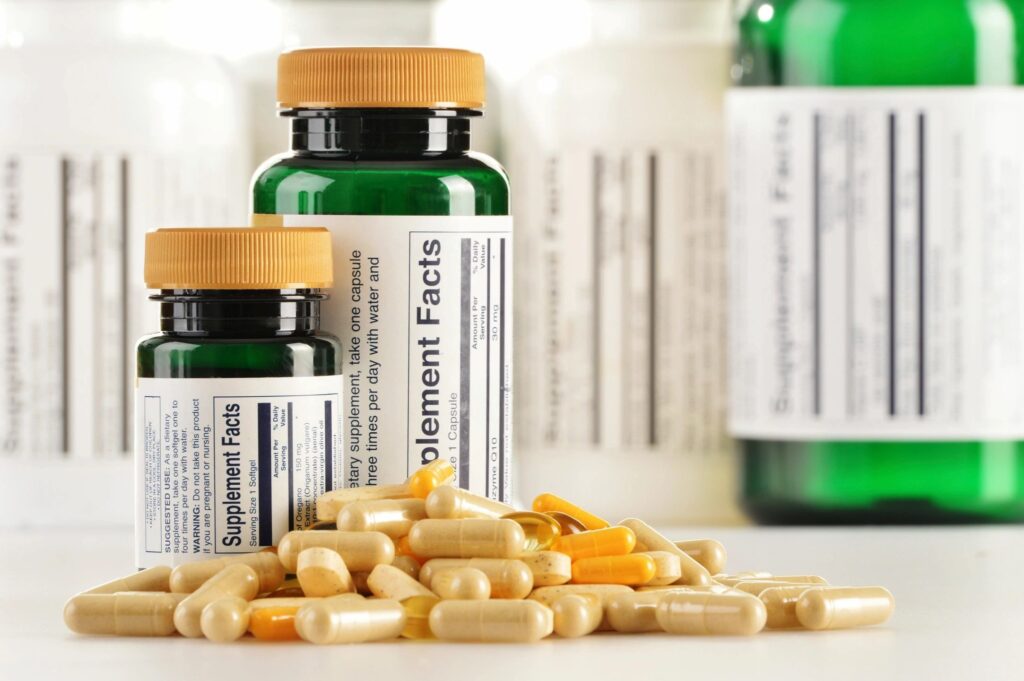
If you’re among the vast majority of older adults, chances are a supplement found its way into your daily routine today. Perhaps it’s seen as dietary insurance, filling nutritional gaps. Or maybe you’re seeking relief from nagging joint pain. Whatever the reason, the last thing on your mind is likely liver damage. Yet, the sobering truth is that many widely used supplements carry the potential to harm this vital organ, sometimes with devastating consequences like liver failure.
While the supplement aisle boasts a variety of options, from multivitamins and single-nutrient formulas (think omega-3s, vitamin D, or calcium) to herbal remedies (also known as botanicals), it’s often these “natural” herbal supplements that pose the greatest threat to liver health. According to AARP reporting on a 2024 study published in JAMA Network Open, a significant number of U.S. adults – roughly 5 percent, translating to over 15 million people – had consumed botanical supplements potentially harmful to the liver within the past month. Notably, middle-aged and older individuals were among the most frequent users. The AARP analysis highlighted six specific botanicals flagged by the Drug-Induced Liver Injury Network as having a strong association with liver toxicity:
- Ashwagandha
- Black cohosh
- Garcinia cambogia
- Green tea extract
- Red yeast rice
- Turmeric/curcumin
As AARP points out, the reasons behind older adults’ use of these specific supplements are often understandable. Turmeric and curcumin are frequently touted for their ability to ease the joint pain associated with arthritis, a condition affecting approximately half of adults aged 65 and older. Black cohosh is commonly marketed to alleviate the discomfort of menopause symptoms. Red yeast rice is often taken to manage cholesterol levels and promote heart health, both significant concerns for older populations.
However, the AARP article cautions that the six supplements listed are just the tip of the iceberg. Research suggests that around 1,000 different medications and herbal products have been linked to liver damage.
How Supplements Can Undermine Liver Health
The liver, as AARP explains, is a resilient yet crucial organ, acting as the body’s primary detoxification center. Dr. Don Rockey, a professor of medicine at the Medical University of South Carolina and an American Liver Foundation volunteer expert, told AARP that “pretty much anything you ingest has the potential to be toxic to the liver.” He elaborated that everything we consume is absorbed through the gastrointestinal tract, with the liver being the first stop. Hepatocytes, the liver’s main cells, work tirelessly to detoxify the body, but they are vulnerable to damage. Common culprits include alcohol and high doses of acetaminophen, as noted by AARP.
Despite their “natural” label, botanicals also fall into this category, according to Dr. Arun Jesudian, a transplant hepatologist at Weill Cornell Medicine and NewYork-Presbyterian, as reported by AARP. He emphasized that “natural compounds still need to be processed by the liver, and, in some cases, can cause very severe liver injury and damage.” Age itself can exacerbate the problem, with age-related changes making the liver less resistant to stress and less efficient at metabolizing substances, potentially leading to more significant damage, AARP highlights.
Liver damage from supplements can manifest acutely or accumulate over time with repeated use, the latter being more typical with botanicals, AARP explains. Dr. Jesudian told AARP that “some substances, including supplements, can cause liver injury in unpredictable ways, and it’s not always dependent on how much you’re taking.” The resulting damage can range from liver inflammation to severe liver failure requiring an emergency transplant.
Furthermore, AARP’s reporting emphasizes that the risk isn’t solely tied to the main ingredient. Supplements can be toxic to the liver (hepatotoxic) due to contamination with substances not listed on the label, such as medications, molds, and heavy metals. This is a significant concern, as earlier research cited by AARP in Hepatology Communications found that a staggering 51 percent of analyzed dietary supplements were mislabeled, meaning their actual contents didn’t match the product label. This makes it incredibly difficult to pinpoint the exact cause of liver toxicity.
Adding to the complexity is the regulatory landscape surrounding supplements in the United States, as detailed by AARP. Unlike prescription and over-the-counter medications, dietary supplements are not subject to pre-market approval by the U.S. Food & Drug Administration (FDA). Instead, manufacturers and distributors bear the responsibility of ensuring their products are safe and accurately labeled. The FDA can intervene with warnings and other actions against mislabeled or potentially dangerous supplements, but this typically occurs after the product is already available to consumers – not beforehand, AARP clarifies.






More Stories
Heart Attack and Stroke Recovery And Prevention Summit
Celebrating National Nurse Practitioner Week: Honoring the Impact and Journey of NPs in Healthcare
Skincare for Aging Skin: Tips and Best Practices